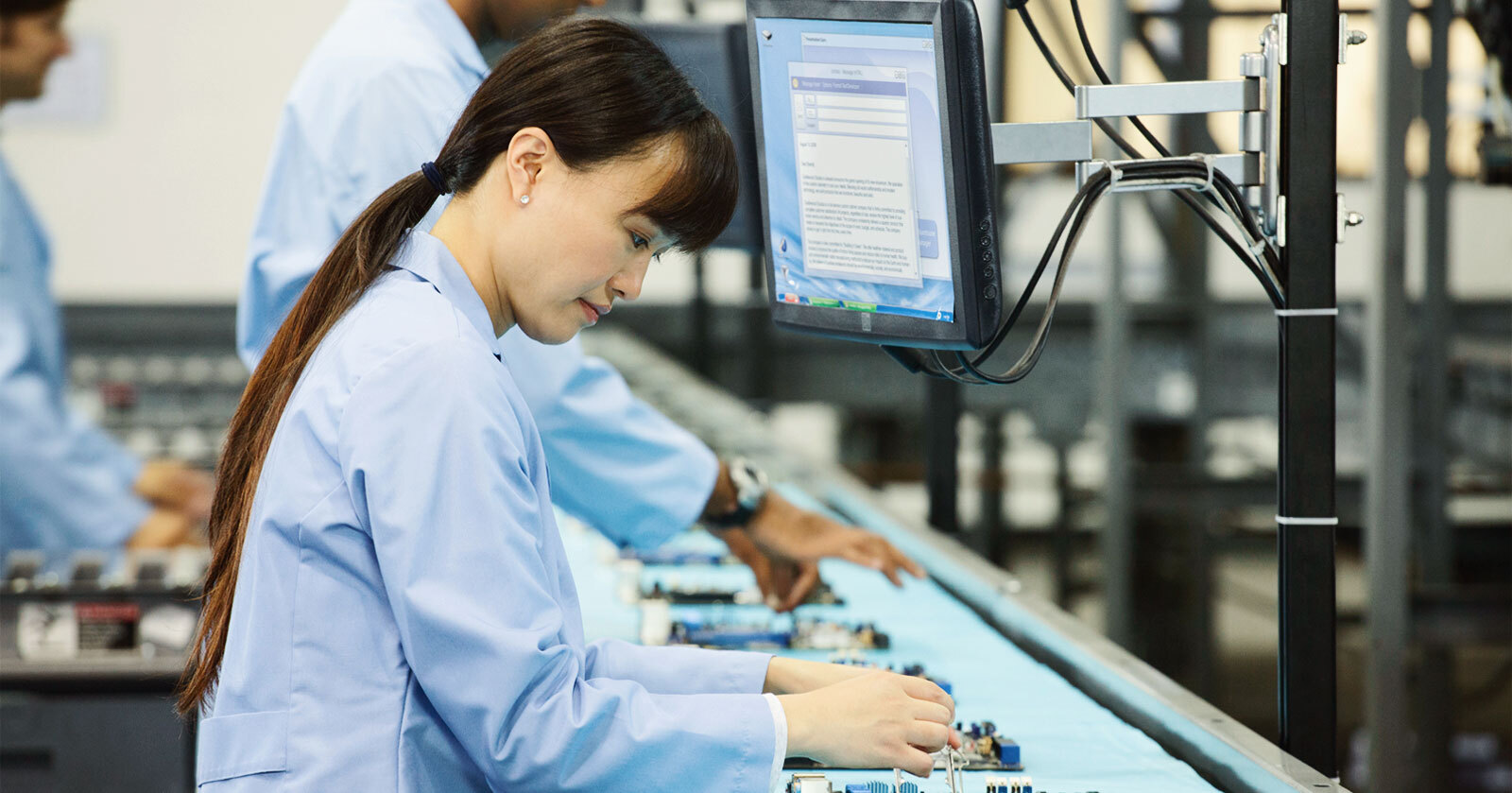A code of conduct and independent factory audits can help structure efforts to improve factory conditions and identify non-conformities. But creating lasting change requires systematic, independent verification that holds the industry accountable, along with ongoing brand owner engagement that incentivizes continuous improvement.
With TCO Certified, factory audits must be carried out by SA8000 or RBA lead auditors at organizations accredited to ISO 17021. They are trained to identify social responsibility issues in factories – both small and large. We interviewed two factory auditors, Lisa Xie and Felix Yu from TÜV Rheinland, on their experiences from the factory floor.
What are the key elements of your methods to ensure compliance with socially responsible manufacturing criteria?
– Our social responsibility audits normally include on-site inspections, employee interviews, documents review, and selected representative samples. All to check if the factory meets the criteria on social responsibility.
What are the most important changes made in factories seeking to comply with TCO Certified?
– Factories seeking to comply with TCO Certified will usually improve issues related to personnel health and safety, unreasonable punishments, and forced labor. Management’s awareness of social responsibility requirements is also improved, and employees get a clearer understanding of their rights.
What assurance does an audit give purchasers of IT products certified according to TCO Certified?
– Social responsibility audits mean that the social responsibility performance of suppliers is evaluated. This reduces social responsibility risks, meaning that the rights and interests of workers are protected It also promotes continuous improvement of supplier social responsibility management, and the sustainable development of the industry. All while enhancing consumer confidence in the brand.
How TCO Certified drives factory improvements
As noted by the factory auditors, factories seeking to comply with TCO Certified will usually need to improve issues related to worker health and safety, working hours, and management’s awareness of social responsibility requirements. Still, even regularly audited factories will often have some deviations — so-called non-conformities — from TCO Certified criteria. What’s important is that the brand owner and factory management are committed and obligated to implement corrective actions. This ongoing system of accountability and dialog ensures long-term improvement of factory conditions.
Consequences: withdrawn certificates, restricted factories
Most importantly, TCO Certified includes a system of consequences for continued non-conformities. Certificates can be withdrawn if non-conformities aren’t corrected on time. If violations persist, the factory is removed from TCO Certified Accepted Factory list, and is no longer permitted to manufacture certified products.
When non-conformities are found, a corrective action plan with a clear deadline is set up to fix them. Factories that do not implement these corrective actions in time will no longer be permitted to manufacture certified products. This proves that the factories on TCO Certified Accepted Factory List demonstrate better practices than factories self-declaring their social responsibility standards. If this system of mandatory audits and follow up was not in place, the risk of a return to bad practices would increase.





